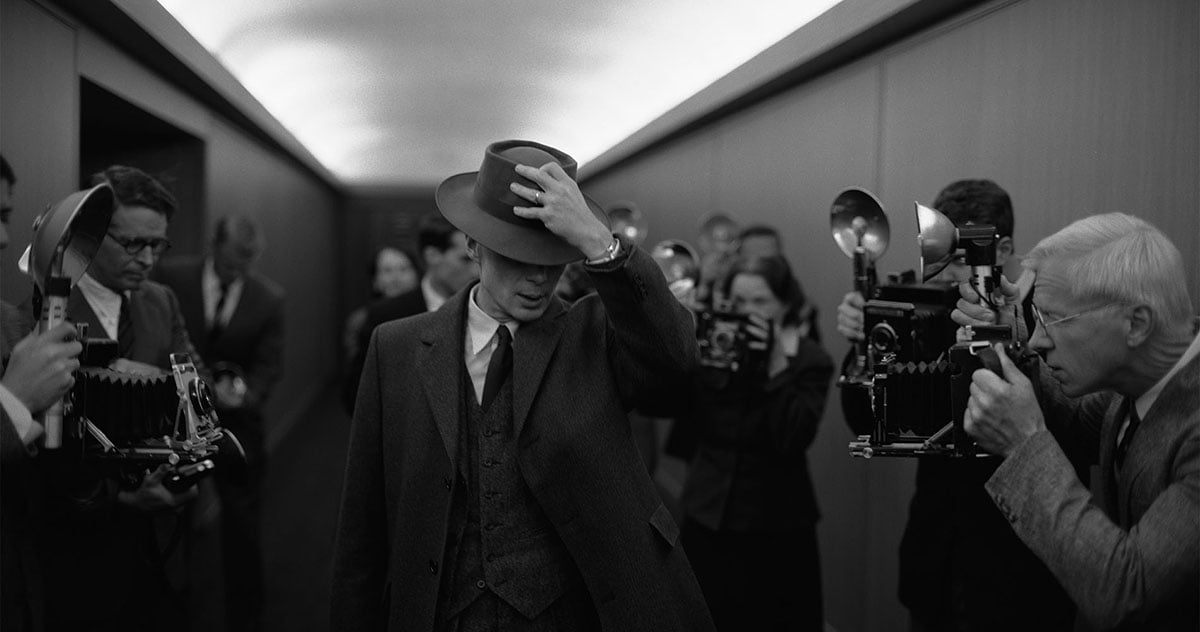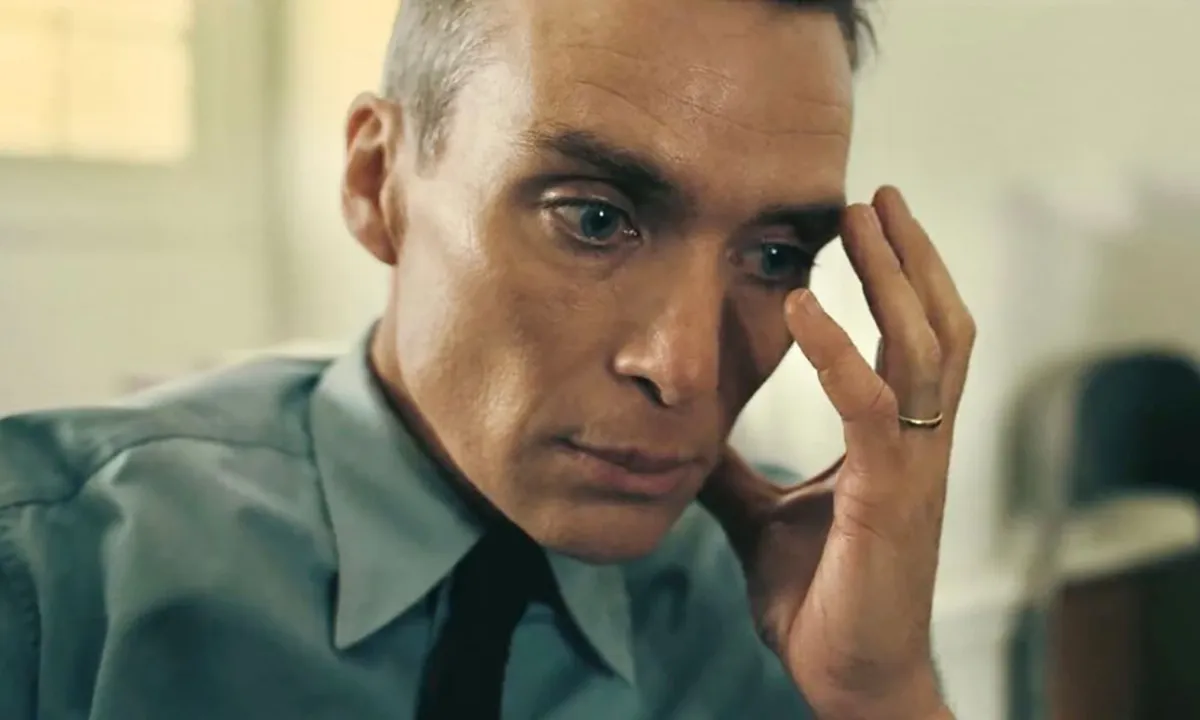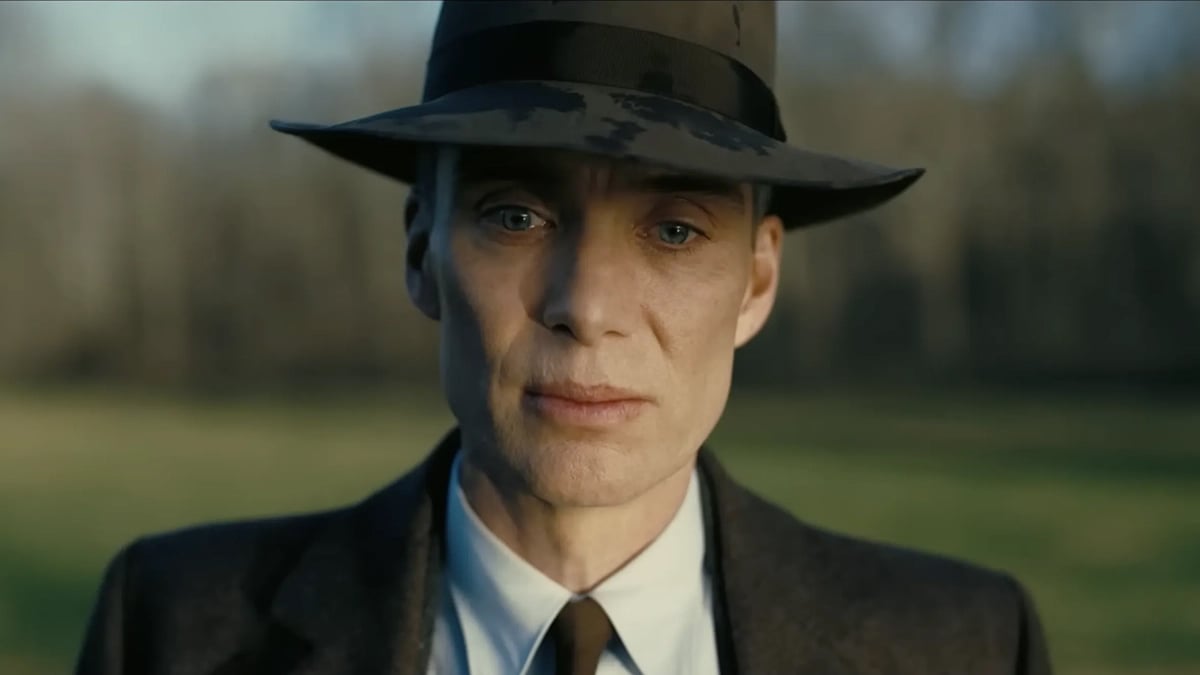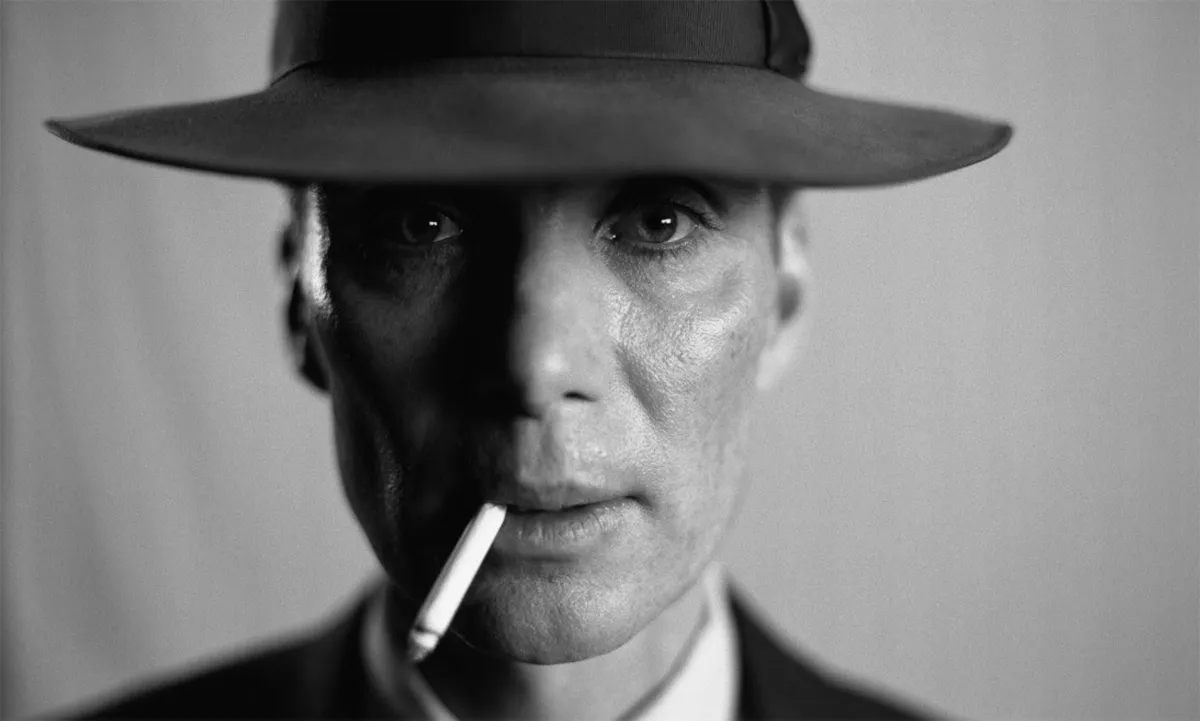Often, Christopher Nolan’s films feel like something much more complicated than they are. On paper, they’re not nearly as in-your-head as people make them out to be. He gives us all the information we need to know, the exact message that he’s trying to bring to life in his work, and with Oppenheimer, Nolan has shown us what power does to men and what happens when they are, for once, faced with the consequences of the abuse of it.
Split between black and white and color, shot on film as Nolan is wont to do, and visually stunning, Oppenheimer will feel like a long haul while you’re in the thick of its 3-hour runtime, but when it decides to punch you in the gut, you’re left breathless with the weight of the world on your shoulders, just as J. Robert Oppenheimer was at a pivotal time in history. The complicated figure of Oppenheimer is played by Cillian Murphy in a stunning display of complexity and simplicity that leaves you seeing his tale of woe and regret come to life while still understanding the mass destruction he brought upon the world.
A cast of brilliant actors all gunning for the truth and excitement of science and winning a war, Oppenheimer serves as both a history lesson and a cautionary tale about what happens when one’s own ambition and drive clouds their judgement and puts the fate of mankind and innocent lives at risk. Men in power will be their own destruction, and they will destroy lives in order to gain what they want. Nolan, however, brings us a gaze into the complicated world that Oppenheimer built for himself and how science and power left him a shell of the physicist he was and a man with blood on his hands.
Men learning the consequences of their actions

Oppenheimer highlights the reality of the quest for knowledge, science, and the dangers of doing so without anyone there to stop you. In the case of J. Robert Oppenheimer, he was a man who was hindered by his own inabilities. He wasn’t great at lab work, was bad at math, and used his science-forward thinking to become the top theorist in the United States. What Oppenheimer shows us is what happens when men like that are given all the things they couldn’t do before.
Oppenheimer was allowed to create a team of the best minds in the country to work on an atomic bomb when the atom was first split (and not by Americans). The project was led by Oppenheimer, with the resistance of the government due to Oppenheimer’s connections to the Communist party, and it led to them having an easy scapegoat when they wanted him gone, simply because eventually Oppenheimer saw what his monster could do and wanted to stop the world from imploding in on itself.
As a whole, the themes of Oppenheimer boil down to one simple fact: Men in power will not see the stakes at hand until it’s too late.
Now I am become death, the destroyer of worlds

When you bring up Oppenheimer the man, many damn him, and rightfully so. His creation directly led to the deaths of around 200,000 people in Hiroshima and Nagasaki. The race to complete the atomic bomb started as a way of beating Germany to the punch, but in the midst of its creation, Adolf Hitler died and Germany surrendered. That wasn’t enough for the United States government, and the creation of the bomb went on to kill civilians in Japan when the war was seemingly wrapping up anyway (according to some historians).
It was one of the darkest times in the history of the world and showed the destructive face of America’s perpetual power grab. What Oppenheimer highlights is the urgency of getting through to those in power about the consequences of their actions and stopping them from making the same mistakes.
For Murphy’s Oppenheimer, his struggle really boils down to his work on the Manhattan Project. A famous womanizer, constantly cheating on his wife Kitty (Emily Blunt) even after their own marriage started with an affair, Oppenheimer’s personal problems don’t play much of a role in the movie outside of the United States government using his friends against him. What we see instead is a man who watches his life’s work slowly fade away from him and turn him into a monster responsible for the deaths of hundreds of thousands at the very least, who created something that could very much end life as we know it.
Nolan uses Albert Einstein’s relationship with Oppenheimer to juxtapose the joy that science can bring with the pain that Oppenheimer caused with his own exploration.
Once more, Nolan’s third act nails it

It is often the case with Nolan films that you don’t quite know what is happening until the last act puts everything into perspective. With Oppenheimer, it’s the crystal clear focus on the folly of men and their conniving ways when they’re backed into a corner. It really just puts the entire narrative into focus and zeroes in on what Nolan is trying to drive home to his audience.
Describing the reaction to his creation’s devastation, Oppenheimer himself famously quoted from the Bhagavad-Gita, “Now I am become death, the destroyer of worlds,” and Nolan’s masterpiece does not shy away from the horrors that Oppenheimer’s work at Los Alamos caused the world, especially Hiroshima and Nagasaki. At its heart, Oppenheimer is about consequences and who suffers from one man’s actions. Visually stunning, as all of Christopher Nolan’s work is, Oppenheimer is one movie that really stays with you. You will leave the theater with the flashing red lights of the bombs going off and the pain of all those lost souls, just as Oppenheimer wore on his own mind and conscience, but knowing that we have the chance to take Nolan’s warning to heart.
(featured image: Universal Pictures)










Published: Jul 19, 2023 12:00 pm